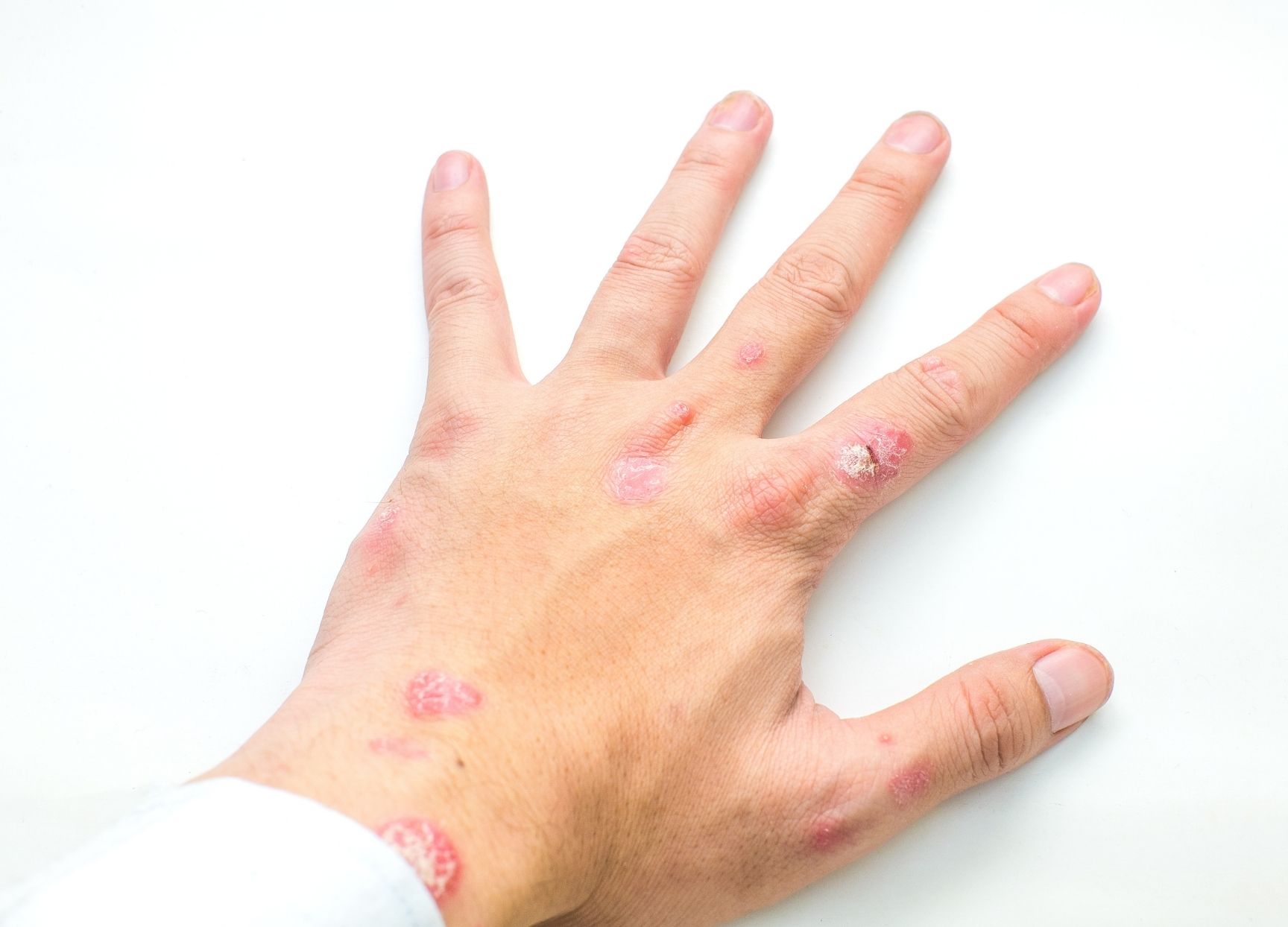Atopic eczema is hereditary — it runs in the family and is a genetic tendency that is linked to having asthma and hay fever (what we call atopic conditions). So, if you have eczema, you may also develop asthma and/or hay fever.
Eczema in children is very common, almost a ¼ of children will develop some eczema, but for most of them it settles before adulthood. Eczema can result from occupational exposure to irritants such as doing lots of ‘wet work’ (healthcare workers, those looking after young children, chefs, hairdressers etc) – water can actually dry the skin out and hand washing/hand sanitizing in the pandemic has caused an increase in irritant hand eczema.
Contact allergic eczema is caused by someone becoming allergic to something they are coming into contact with, such as perfumes, chemicals in body products, metals, hair dyes etc. Eczema is not contagious so you cannot give it to anyone, and they can’t give it to you.
